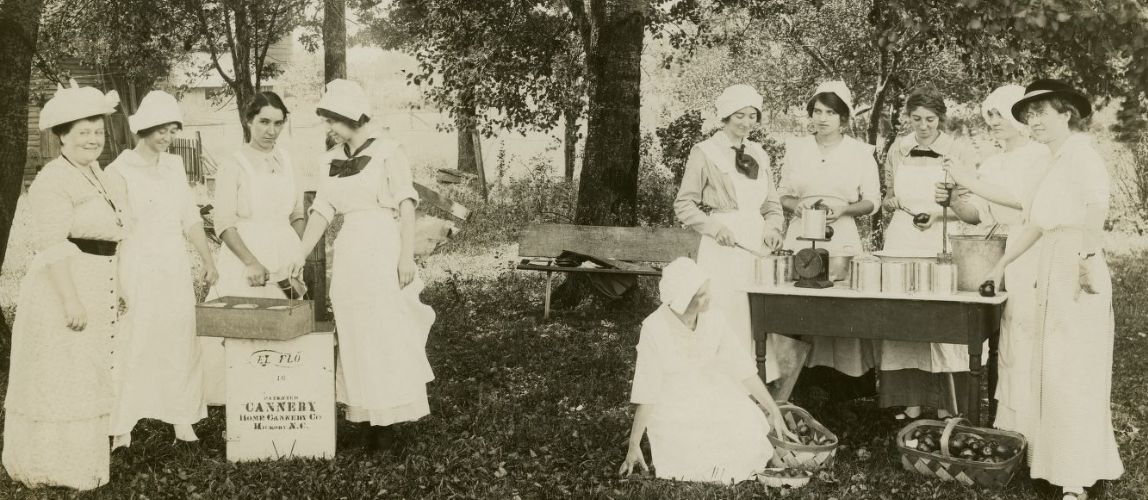It’s the time of year when your garden – and your social media feed – fill up with plump homegrown tomatoes. They might be showcased in a tomato pie, that “Southern Living” favorite, or stuffed between white bread with a dollop of mayonnaise. (It used to be JFG if you were from here, but now it’s likely Duke’s.) Tomatoes are a summer treat, but once upon a time they were regarded as a way to self-sufficiency and community improvement.
Beginning in 1910, home demonstration agents approached girls all over the South about creating “tomato clubs.” These energetic women, most former teachers, would travel their states and show girls how to sow their own patches of tomatoes and then can them. Virginia P. Moore, a native of Gallatin, was Tennessee’s first agent, the fourth such in the country. Within a year there were 75 plots around Knox county being tended by industrious teenage girls.

A woman identified as Grace Waters, in an unidentified part of Knox County, c. 1912.
In 1914, the home demonstration and extension services became attached to the University of Tennessee. Moore’s valuable collection of “tomato club” memories ended up in the university’s special collections, a gift from her great-niece.
The collection included Moore’s photographs of girls farming and canning from Hamilton County to Shelby and back. There is a 1914 photo of a club meeting in Karns, at the home of a Netta Butler, promoting a state-of-the-art can seamer and pressure cooker in the young lady’s front yard.
A scrapbook includes one of Moore’s biggest achievements, the Girls Tomato Club exhibit at the 1913 National Conservation Exposition in Knoxville. (The site became the beginning of Chilhowee Park). At the exhibition, Moore lorded over several other states’ agents as chair of the Girls Canning Club of the Southern States.
In 1919, Moore left her job to return home to Gallatin. She took an extension job in Florida in 1923, where her work took her to the gardens of Thomas Edison and beyond.
“Tomato club” work in Tennessee continued and became the serious business of agricultural extension services for farm households as well as the basis of what we now know as the 4-H club. Extension services came under the leadership of Knoxville High graduate Margaret Ambrose, a member of the city’s prominent Ambrose and Claiborne families.
She was described as a friendly, determined woman who traveled into the hills, hollers and valleys by horse and carriage if cars couldn’t go. She began organizing weeklong camps at the UT campus that brought thousands of Tennessee farm wives together to learn skills they could take back to their own acreage.
“Canning tomatoes was a way of getting in the kitchen, and the kitchen was the starting place for our farm home improvement program,” Ambrose said. From a few juicy red plants, progress blossomed.

